Why Rescuers Placed Live People in Rubble After 9/11 and Other Lesser-Known Facts That Will Shock Even Cynics!
17 Dec 2024Sometimes we think that nothing can surprise us anymore—but how wrong we are! Amazing things are happening all around us, things that are sure to leave no one indifferent.
Quebec’s Bold Move Against Childhood Obesity
Did you know that Quebec has one of the strictest bans on toy and fast-food advertising aimed at children under 13? This policy, introduced in 1980, was revolutionary for its time.

Interestingly, this law applies across the board: no cartoon mascots selling cereals, no flashy ads for the latest toys during kids’ shows. Fast-food chains, especially, had to rethink their marketing strategies. The results are clear—when kids aren’t bombarded with ads, parents spend less on junk food.
Elephants Are Masters of Self-Awareness
Elephants don’t just remember—they recognize! A 2006 study revealed that these magnificent creatures can recognize their reflections in mirrors, a trait known as self-awareness. Researchers conducted experiments where elephants were exposed to large mirrors, and instead of assuming the reflection was another animal, they began inspecting themselves, even touching marks placed on their heads with their trunks.
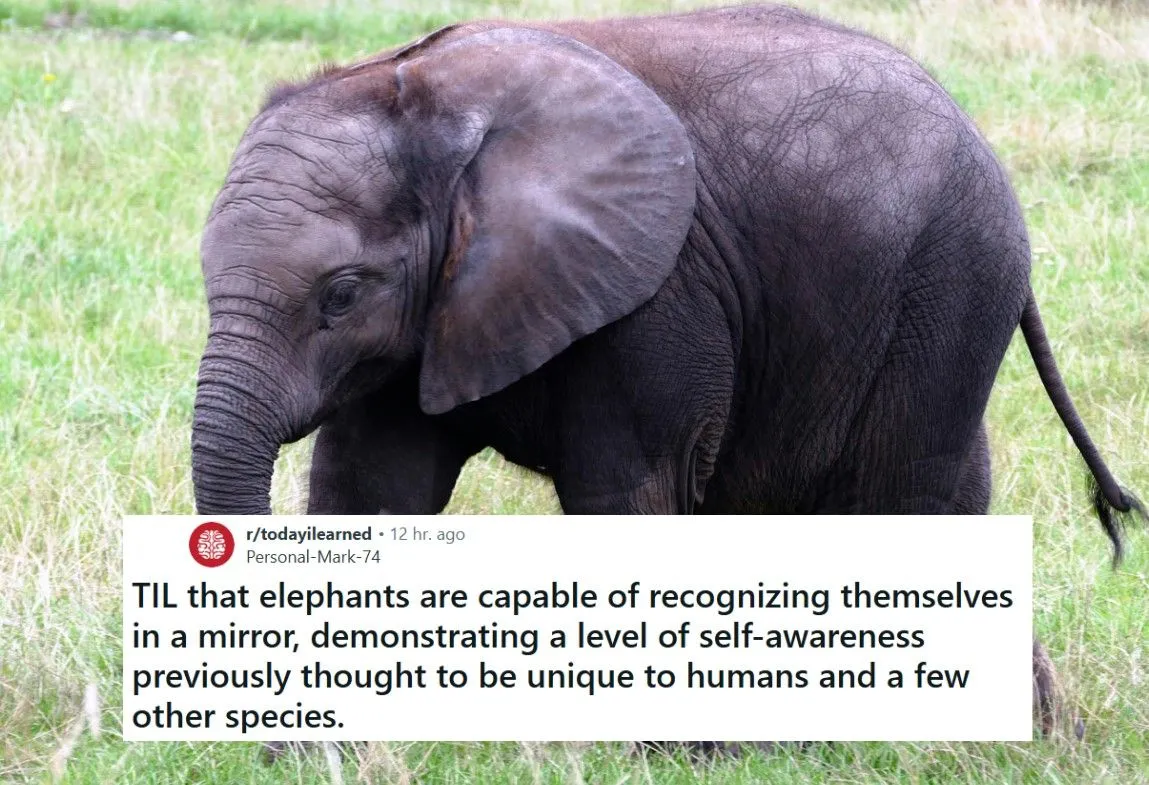
This ability is incredibly rare in the animal kingdom and places elephants in an elite group that includes humans, great apes, dolphins, and some birds.
The Universe’s Senior Citizen Planet
When we talk about old things, a 12.7-billion-year-old planet takes the cake. PSR B1620−26 b, affectionately nicknamed “Methuselah,” is located in a globular cluster about 12,400 light-years from Earth. This ancient planet formed not long after the Big Bang, making it a cosmic relic that has witnessed the entire history of the universe.

What’s particularly fascinating is its unusual orbit. Methuselah orbits a binary star system consisting of a white dwarf and a pulsar—a configuration as unique as the planet itself.
Philip Morris’s Anti-Smoking Irony
Philip Morris International, a name synonymous with cigarettes, once made headlines for creating the Foundation for a Smoke-Free World. Sounds like a great initiative, right? Except for one glaring detail—it’s funded entirely by a tobacco company.
 @wikipedia.org
@wikipedia.org
Critics have slammed the foundation as a way to promote alternatives like e-cigarettes while continuing to sell traditional tobacco products in developing countries. The controversy hasn’t stopped there. Public health organizations, including the World Health Organization, have distanced themselves from the initiative, calling it a conflict of interest.
When the Mail Delivered a Child
Mailing a package is normal—but mailing a child? That’s what happened in 1914 when Charlotte May Pierstorff’s parents decided to send her to her grandmother.
 @wikipedia.org
@wikipedia.org
The mail clerk personally delivered her to her grandmother, safe and sound. While this was technically within postal regulations at the time, the incident became so infamous that the U.S. Postal Service quickly changed its rules to prevent any further child shipments.
Titanic’s Final Feast
The Titanic’s last supper included some lavish dishes but one menu item stands out for its oddity: Chicken à la Maryland. This dish consists of fried chicken paired with sautéed bananas. While it may sound unusual today, it was a popular delicacy in the early 20th century.

The combination of sweet and savory flavors was a hit among first-class passengers, though it’s hard not to imagine the surprised faces of modern diners if this dish were served today.
Broadway’s Big Gamble
Behind the glitz and glamour of Broadway lies a startling truth: 80% of shows fail to turn a profit. Whether it’s due to high production costs, weak ticket sales, or lukewarm reviews, most theatrical productions don’t see financial success.
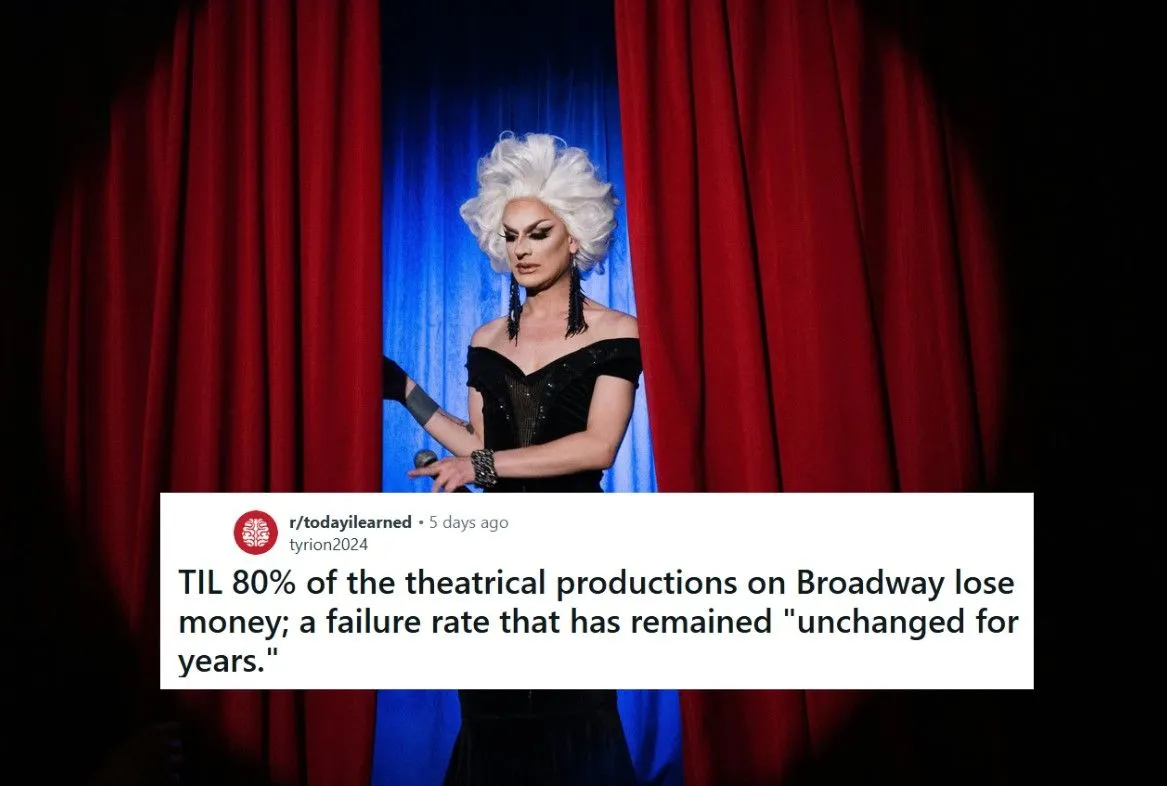
However, the small percentage that succeeds—think Hamilton or The Lion King—make up for these losses, often running for years and grossing millions. It’s a high-risk, high-reward industry, where a single hit can make or break a theater company.
The Welsh Bomb That Backfired
In 1969, Welsh nationalists plotted to bomb Prince Charles during his investiture as Prince of Wales. But the plan went disastrously wrong when their homemade bomb exploded prematurely, killing two of the conspirators.
 @walesonline.co.uk
@walesonline.co.uk
The tragic incident highlighted the tensions between Welsh independence movements and the British monarchy. Despite the setback, the investiture went ahead as planned, and Prince Charles later expressed his sympathy for the families affected by the botched plot.
Edinburgh’s Grim Entrepreneurs
In 1828, William Burke and William Hare ran a macabre business in Edinburgh, selling bodies to anatomist Robert Knox for dissection. Their "supply chain" wasn’t grave-robbing—it was murder. Over a year, the duo killed 16 people, earning £7–£10 per body, equivalent to about £700–£1,000 today.
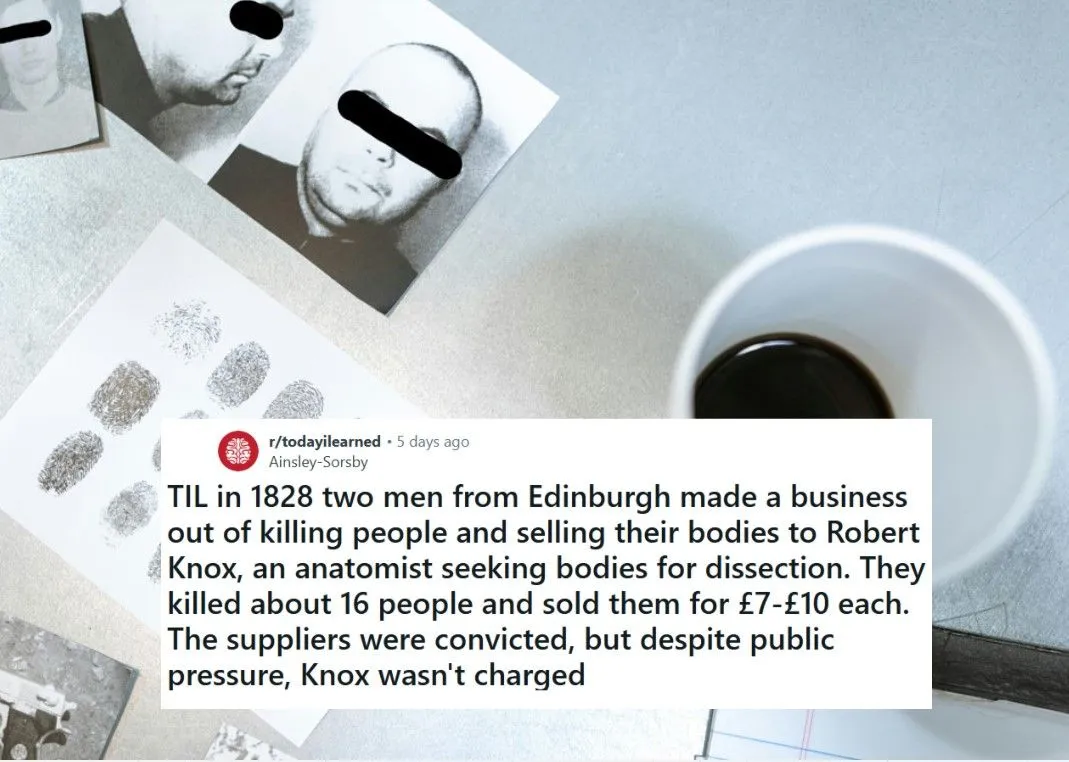
While Burke and Hare faced justice, with Burke executed, Knox escaped charges despite public outcry. Their crimes eventually led to stricter laws governing the sourcing of bodies for medical research, revolutionizing ethical standards in science.
A Ritual Older Than History
Pouring a drink for fallen friends isn't just a modern tradition—it dates back to 2500 BC.
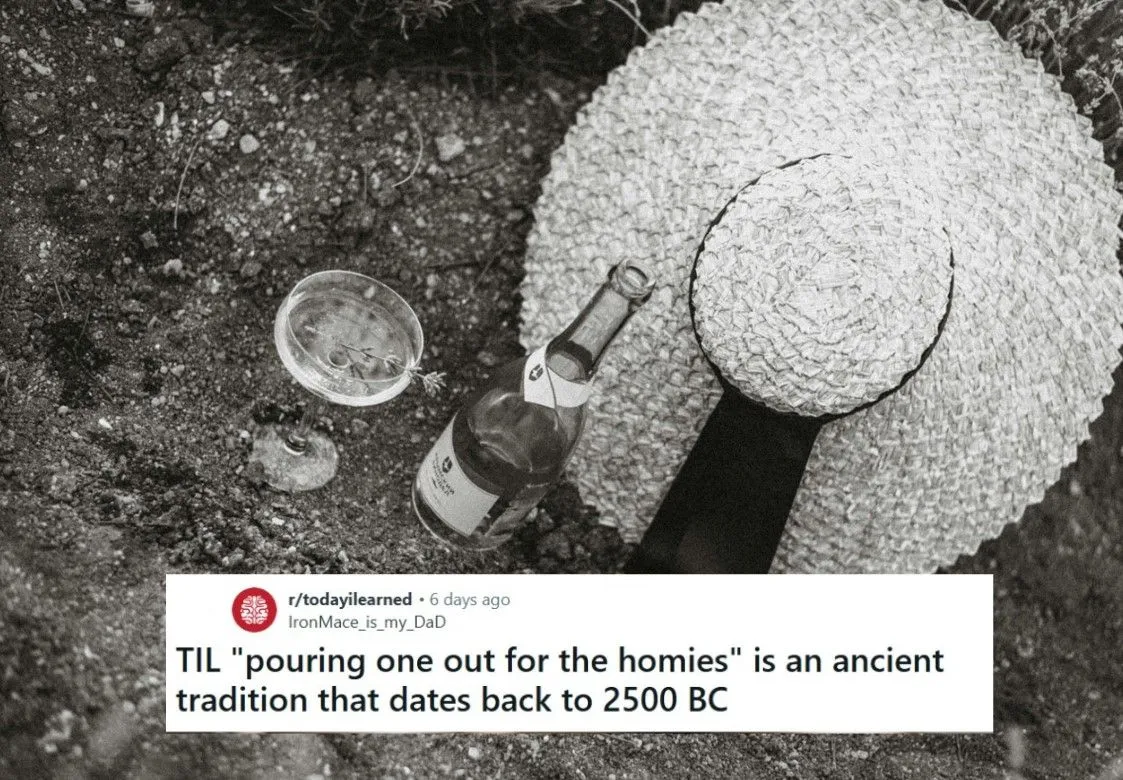
Ancient Egyptians, Greeks, and Romans practiced libation, a ritual offering of liquids to gods or spirits of the deceased. They believed the act strengthened bonds between the living and the dead, creating a timeless gesture of remembrance.
Obesity and Car Crash Fatalities
Obesity doesn't just pose health risks—it also affects survival rates in car crashes. Studies show obese drivers are 80% more likely to die in accidents compared to their healthier counterparts. Why?
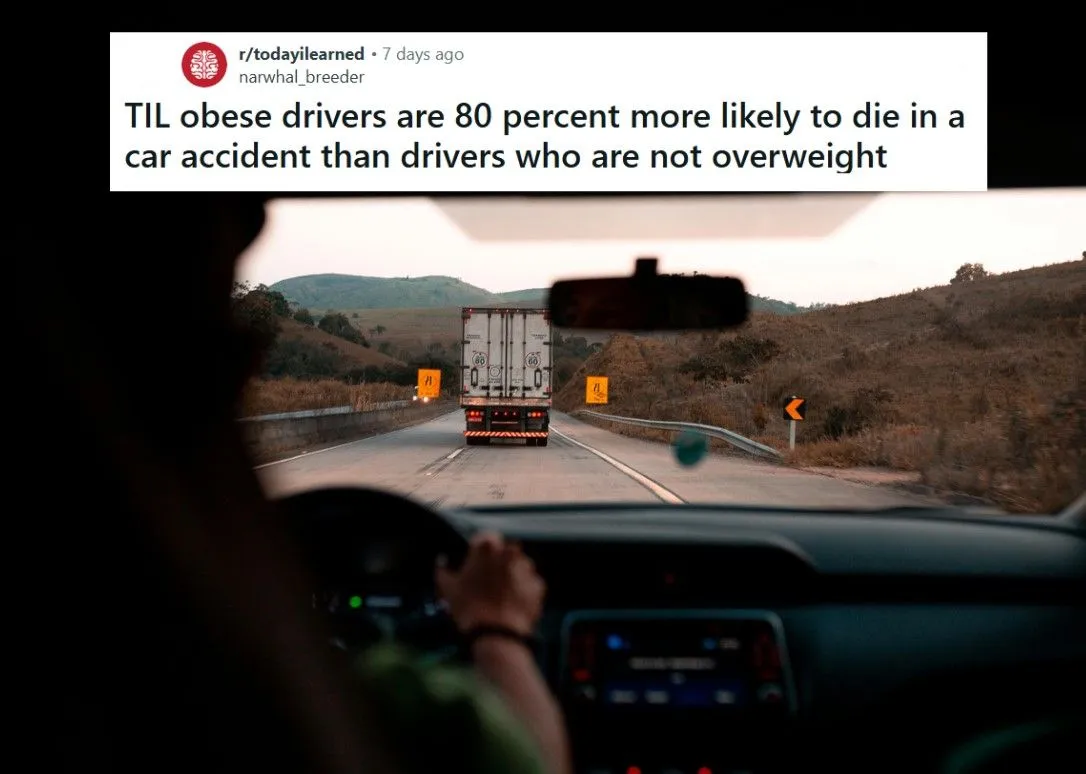
Car safety features, like seat belts and airbags, are often less effective for larger body sizes. Additionally, obesity-related health complications can worsen post-accident outcomes. With obesity rates rising globally, automakers are being urged to design vehicles that better protect diverse body types.
Santa’s Green Origins
Before Coca-Cola made him iconic in red, Santa Claus wore green. This original outfit connected Santa to his pagan roots, symbolizing fertility and nature during winter solstice celebrations.
 @oakwoodhomes.lifesycle.co.uk
@oakwoodhomes.lifesycle.co.uk
The red-and-white makeover came in the 1930s when Coca-Cola used Santa for holiday advertisements. While his green suit has largely faded into folklore, some traditions still honor Santa’s more natural, earth-centered origins
“Friends with Benefits” or Unspoken Expectations?
What’s really going on in "friends with benefits" relationships? A 2011 study published in The Journal of Sex Research uncovered that two out of five women and one out of five men in these casual arrangements secretly hoped for more—a full-fledged romance.

While some partners manage to stay strictly platonic, the blurred lines often create silent tension. This finding sheds light on how emotional attachments can complicate even the most "casual" of connections.
Unexpected Perception of Glasses
A 2022 study revealed surprising insights into how glasses are viewed in Jordan. Participants overwhelmingly rated people wearing glasses as less attractive, confident, and intelligent compared to when they weren’t wearing them.

While the negative attractiveness perception aligns with studies in Western cultures, the association of glasses with lower intelligence is striking! This finding challenges global stereotypes of the “smart glasses wearer” often depicted in media.
Fortune Telling with...Cheese!
Forget crystal balls—cheese was once a tool for divination! Tyromancy, practiced from 200 AD to the Middle Ages, involved interpreting cheese patterns, smells, and textures to predict the future.
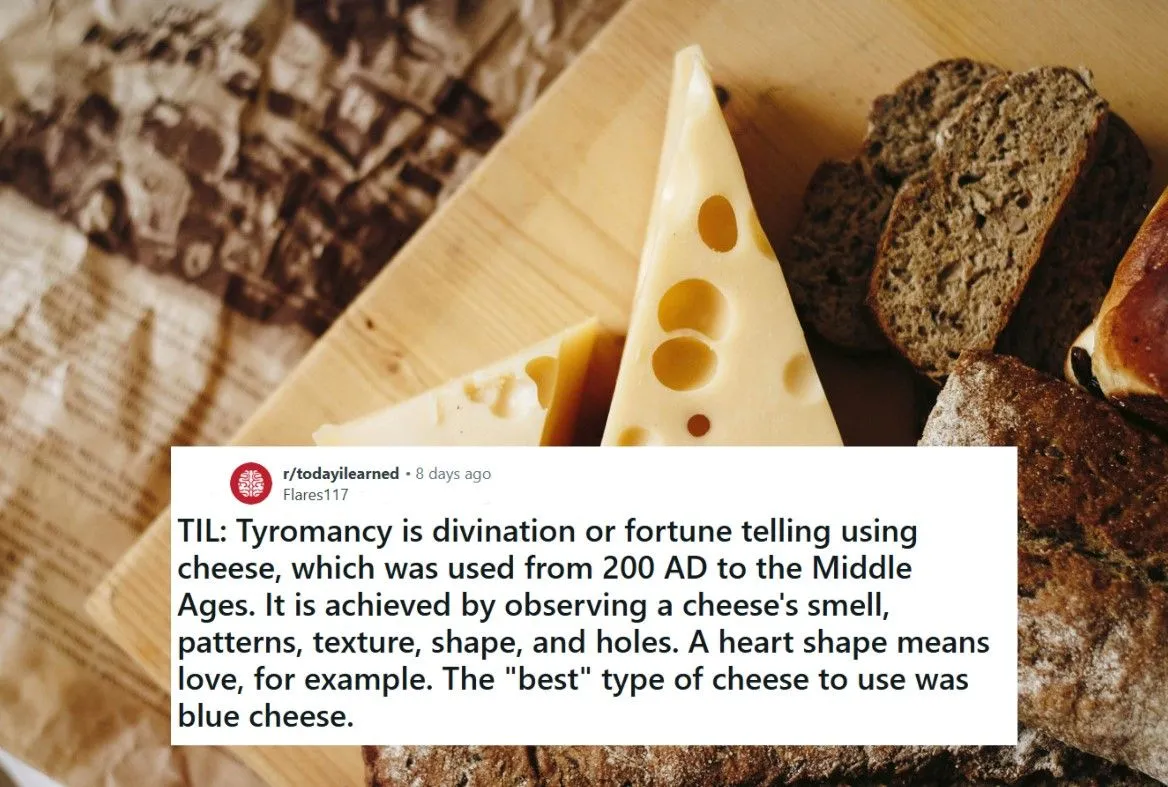
A heart-shaped crack might foretell love, while an unusual odor could hint at danger. Blue cheese, with its intricate patterns, was considered especially powerful for this ancient art. While no longer a popular practice, tyromancy reflects humanity's knack for finding meaning in the unexpected.
A Creative Solution for Party Problems
Back in the Ottoman Empire, bars in Turkey came up with a solution for handling overly intoxicated patrons: hiring "basket carriers." While the idea sounds charmingly absurd now, it was an essential service for the time.
 @vintagenewsdaily.com
@vintagenewsdaily.com
With cobblestone streets, no streetlights, and questionable hygiene in the public sphere, stumbling home drunk could be dangerous. The carriers didn’t just work for tips; they were part of the bar culture, ensuring patrons returned safely and, presumably, were alive to return the next night.
Whaling’s Grim Survival Code
Sailing in the 1800s wasn’t for the faint of heart. Whaling, in particular, was a life fraught with danger, isolation, and hunger. For sailors stranded at sea without food, survival sometimes came down to an unthinkable practice: cannibalism, institutionalized as "the custom of the sea."
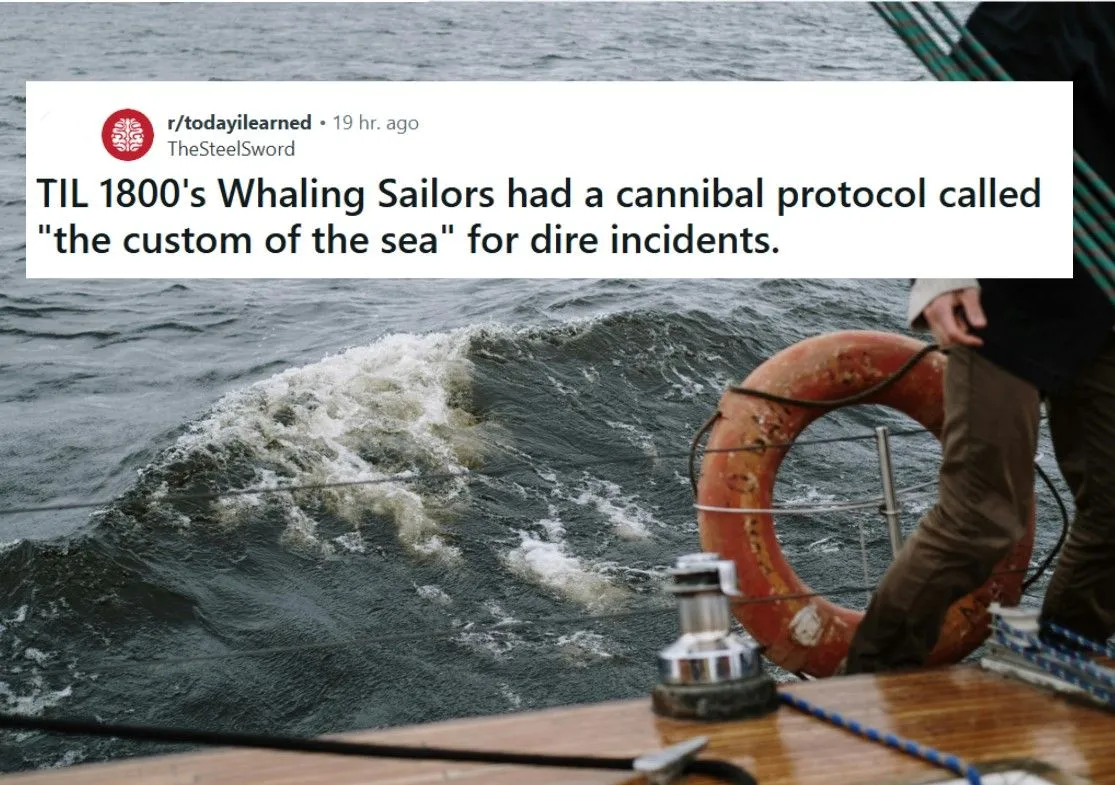
This grim protocol dictated that crew members would draw lots to determine who would be sacrificed to keep the others alive. Though chilling, the practice wasn’t uncommon; it was even documented in the case of the Essex shipwreck, which inspired Moby-Dick.
Eyebrows: The Unsung Heroes of Facial Recognition
Think eyes are the windows to the soul? Turns out, eyebrows might be the gates to recognition. Researchers found that removing eyebrows from pictures of familiar faces made it significantly harder for people to identify them—more so than removing the eyes themselves!
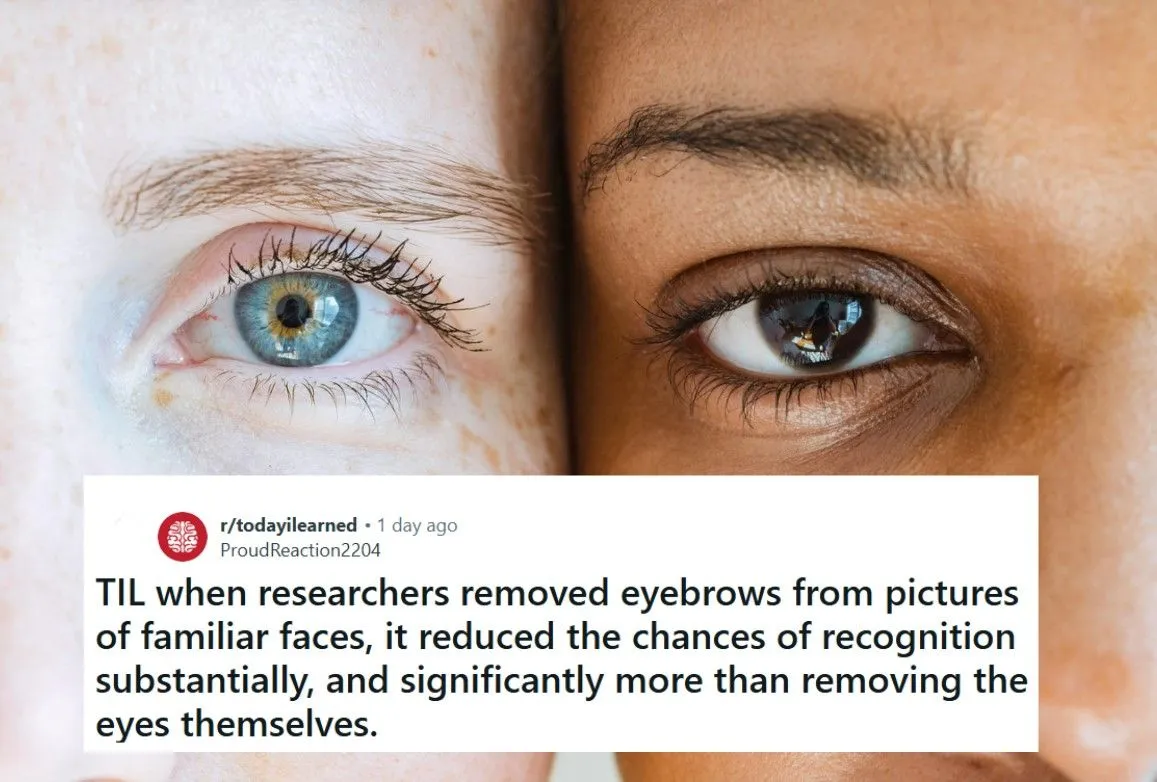
It’s not just about vanity; eyebrows convey emotion and identity in subtle ways we don’t fully appreciate until they’re gone. This explains why poorly-drawn eyebrows in fashion or film tend to cause so much discomfort.
A $16.35 Tip That Sparked a National Debate
In 2009, two college students made national news after they were jailed for refusing to pay a $16.35 mandatory tip at a Pennsylvania restaurant. Their reason? Terrible service. The restaurant called the police, and the pair were charged with theft for skipping the gratuity.
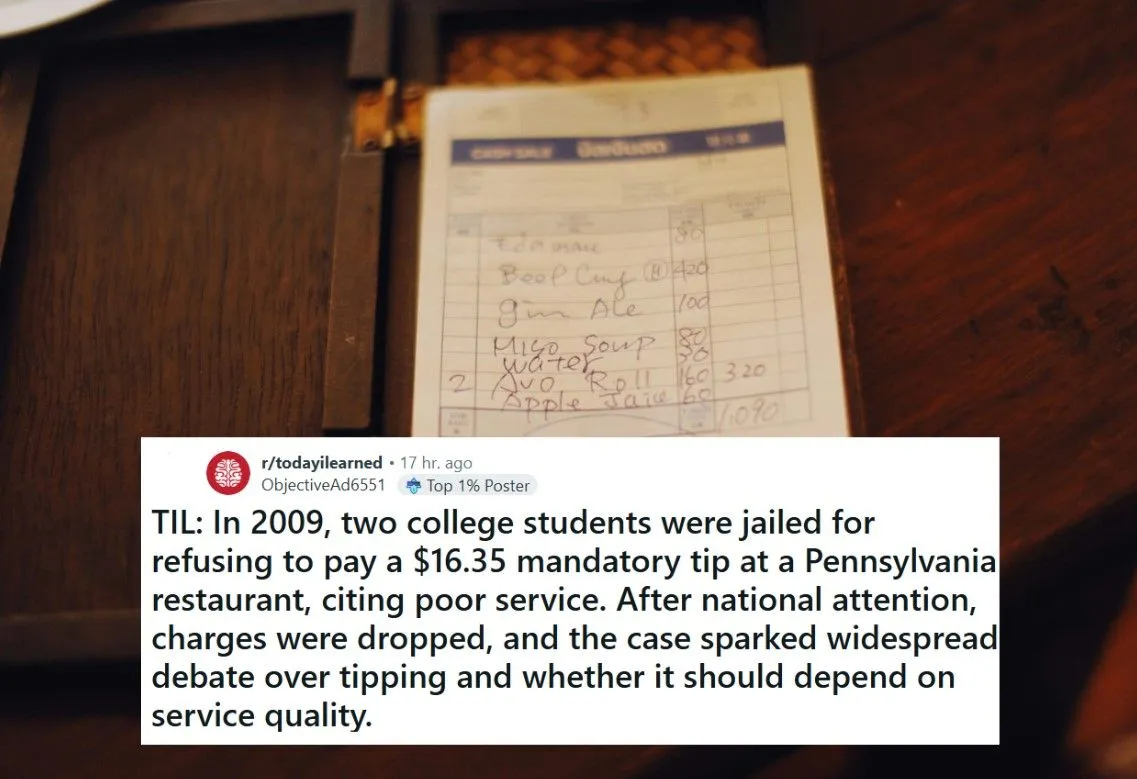
Public outcry was swift. Many people argue that tips should be earned based on service quality, not forced.
Converse Sneakers’ Clever Tax Trick
Ever wondered why the soles of Converse sneakers have a strange, thin layer of felt? It’s not for traction or style; it’s for tax loopholes. This small detail allows Converse shoes to be classified as slippers under U.S. import laws, which reduces their tariff costs significantly.

This clever workaround means the company pays lower taxes, and potentially, consumers benefit from lower prices. The trick dates back to the early 20th century, proving that sometimes the smallest details can make the biggest impact—especially when it comes to global business.
From Overnight Fame to Sudden Disappearance
In 2013, a simple mobile game called Flappy Bird took the world by storm, and by early 2014, it became the most downloaded game on the App Store. But just as quickly as the game rose to fame, it disappeared.
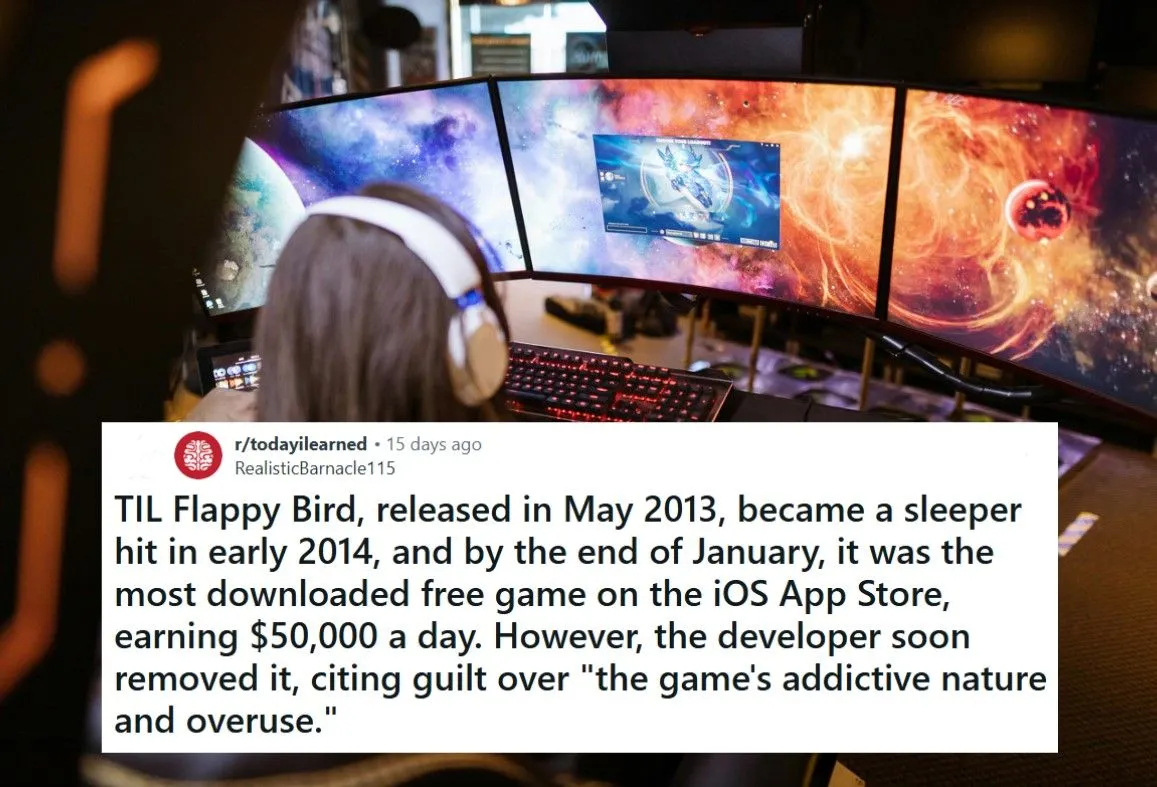
Nguyen voluntarily removed Flappy Bird from app stores, citing guilt over the stress it caused players. Ironically, its removal only increased demand. Phones with the game pre-installed were being sold on eBay for thousands of dollars. Talk about a legacy for a game with such a simple concept!
Hangul: The Alphabet You Can Master Before Lunch
The Korean alphabet, Hangul, wasn’t just revolutionary—it was life-changing. King Sejong the Great introduced it in the 15th century as a way to promote literacy among common people. Unlike the complex Chinese characters that required years of study, Hangul was designed to be logical and easy to learn.

Its genius lies in its simplicity: each letter represents a sound, and its shapes mimic the position of your mouth and tongue when pronouncing it. Today, many people say you can learn the basics of Hangul in just 20 minutes. It’s a remarkable example of how accessibility can break down social barriers.
When Hitler Met an Unstoppable American Woman
At the 1936 Summer Olympics in Berlin, Adolf Hitler experienced a moment of humiliation that would go down in history. While signing autographs, an American woman managed to break through his security detail and planted a kiss on his face.
 @onthisday.com
@onthisday.com
The incident enraged Hitler! Though the woman’s identity remains unknown, her bold move is remembered as a crazy moment in Olympic history.
The €222 Million Nap
In one of the costliest workplace blunders ever, a German bank clerk accidentally transferred €222,222,222.22 while processing what should have been a simple €64.20 transaction.
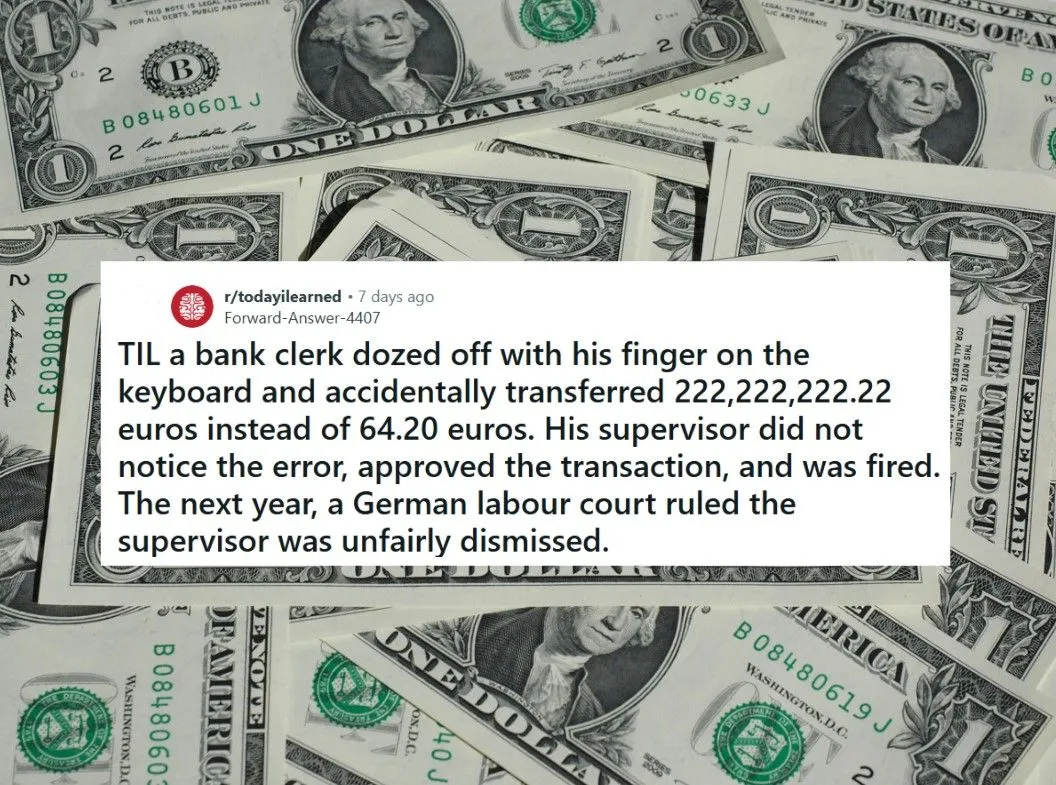
While the bank reversed the transfer, the supervisor was fired for negligence. However, in a twist of justice, a German labor court ruled in 2013 that firing the supervisor was an overreaction, and they were unfairly dismissed. It’s a lesson in the dangers of desk naps and workplace vigilance.
Coulrophilia and the "It" Effect
The 2017 It movie reboot gave Pennywise the Dancing Clown a terrifying new edge. Vice interviewed a professional clown escort, Sugar Weasel, who revealed that after the movie’s release, women began seeking out clowns for intimate encounters.

Props, face paint, and oversized shoes are apparently major elements of the attraction. What many dismissed as a niche interest became a mainstream curiosity. Whether it’s the thrill of danger or the absurdity of it all, Pennywise proved that clowns could be both terrifying and tantalizing.
Big Ben’s Forgotten Genius
The man behind one of London’s most iconic landmarks, Big Ben, is largely forgotten. Augustus Pugin, the designer of the clock tower, worked tirelessly on its gothic details. However, shortly after completing the design, he suffered a mental breakdown and was institutionalized.
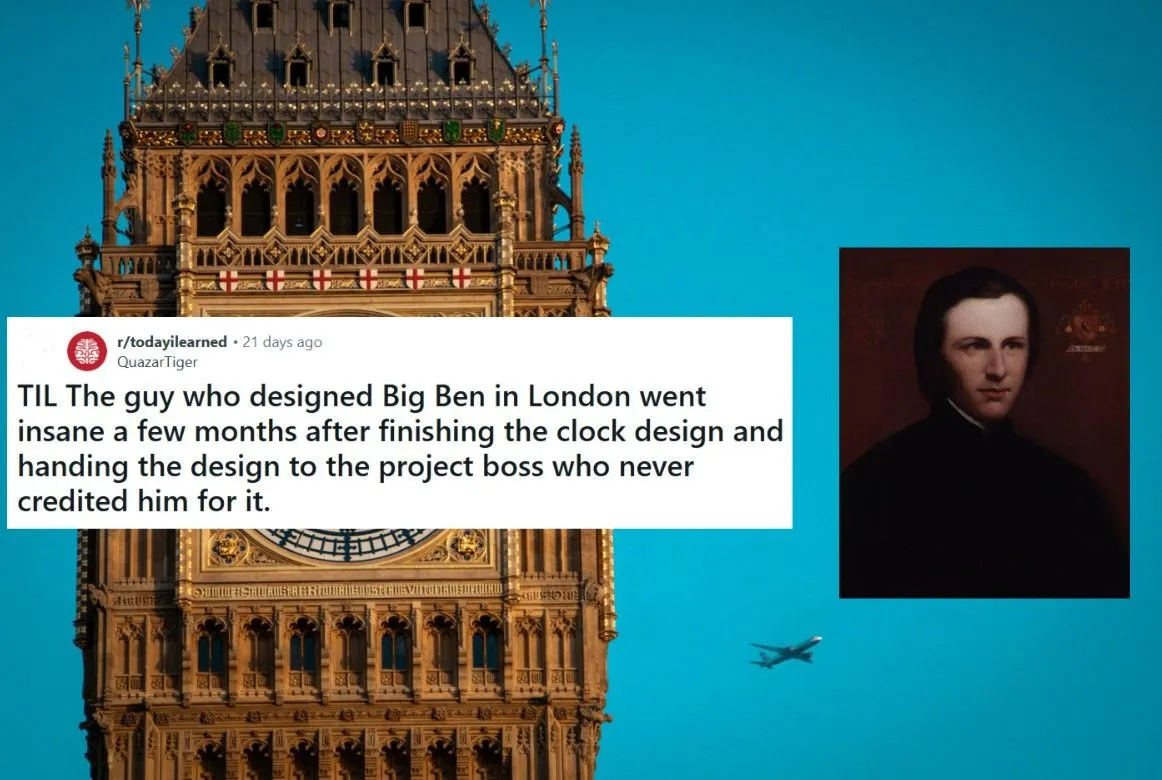 @wikipedia.org
@wikipedia.org
Pugin’s tragic story reminds us that behind every architectural marvel, there’s often a human story of sacrifice, and sometimes, heartbreak.
Johnny Depp Saves Courtney Love
In the mid-'90s, Hollywood’s grunge queen, Courtney Love, had a brush with death outside the infamous Viper Room nightclub in Los Angeles. After overdosing, she collapsed, and it was none other than Johnny Depp who came to her rescue.
 @Getty Images
@Getty Images
Courtney Love later spoke openly about the incident, expressing gratitude to Depp. The story is just one of many dramatic moments tied to the Viper Room, a venue steeped in celebrity scandals and near-tragedies.
Eels’ Reproductive Mystery Solved
For centuries, scientists were baffled by how eels reproduce. Aristotle believed they spontaneously generated from mud, while others guessed they transformed from other creatures. It wasn’t until 2022 that researchers cracked the case. Eels migrate thousands of miles to the Sargasso Sea, a mysterious region in the Atlantic Ocean, where they spawn and die, leaving their offspring to drift back to Europe and North Africa.
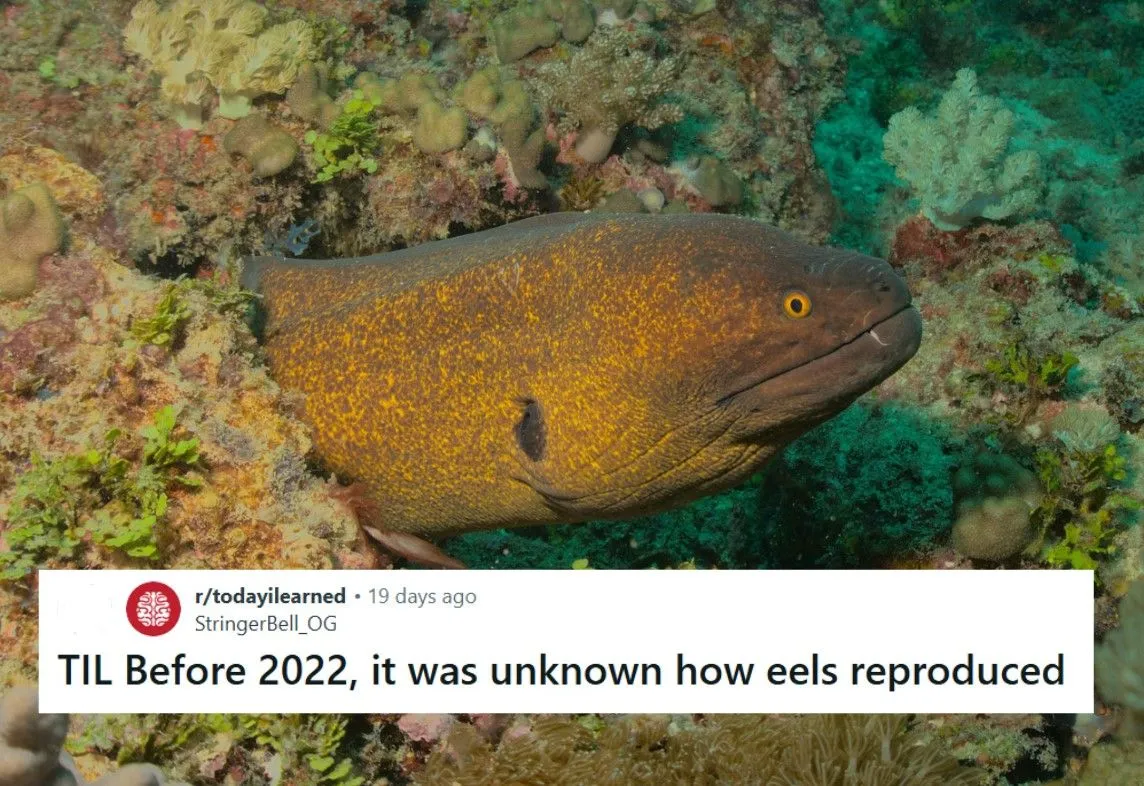
Using satellite tracking and genetic testing, scientists finally uncovered the secret behind this ancient mystery. Eels' life cycle is now considered one of nature’s most incredible journeys.
The Painful History of P*nis Enlargement
Penis enlargement techniques have existed for millennia, ranging from questionable to downright dangerous. Ancient Greeks and Indians wrote about bizarre methods involving weights, herbs, and potions. Perhaps most extreme was the practice of the Topinamá tribe in Brazil during the 1500s, who allowed venomous snakes to bite their genitals in hopes of increasing size.

Fast forward to the 20th century, and penis pumps were popularized, though their history dates back much earlier. While medical science has debunked most of these techniques, the obsession with enhancement persists, showing how ancient insecurities remain oddly timeless.
The Macarena’s Scandalous Secret
The Macarena was the dance craze of the 1990s, played at every party, wedding, and school dance. But while the beat is infectious, the lyrics tell a very different story. The song is about a woman named Macarena who cheats on her boyfriend while he’s serving in the military—specifically, by having a “ménage à trois” with his two friends.
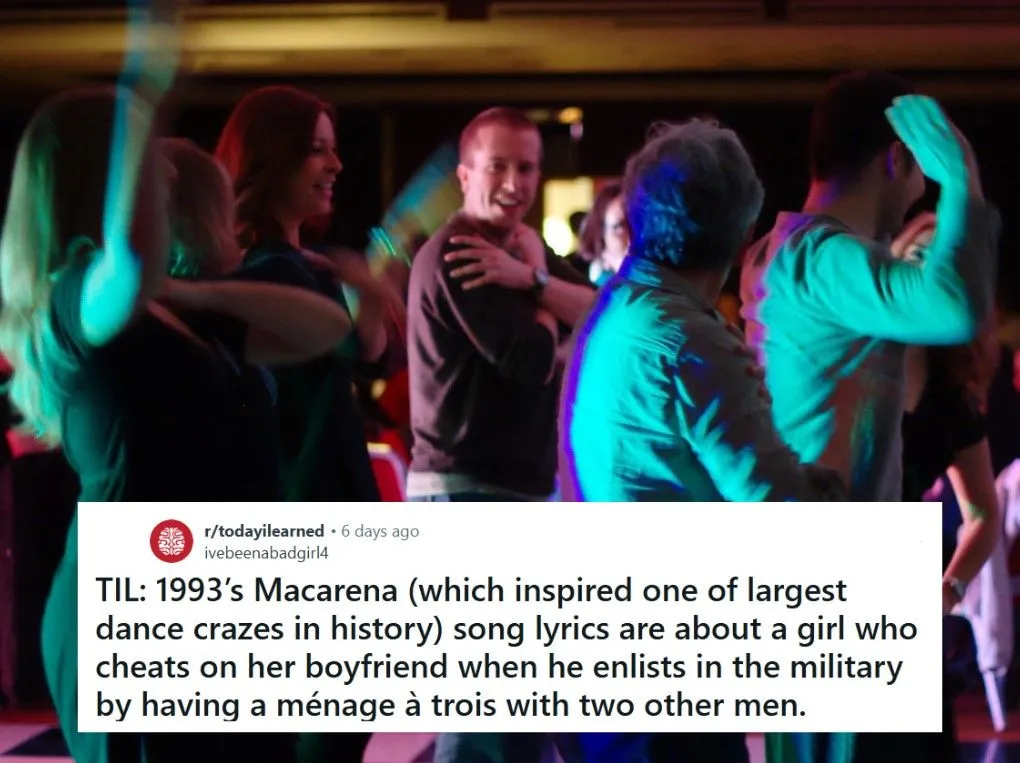 @geekslop.com
@geekslop.com
This cheeky storyline somehow flew under the radar during its peak popularity, likely because most English-speaking fans never translated the Spanish lyrics.
Gold Ownership Once Forbidden
It’s hard to imagine now but owning gold as a private citizen in the United States was once a crime. In 1933, President Franklin D. Roosevelt signed Executive Order 6102, prohibiting private hoarding of gold to stabilize the economy during the Great Depression. Citizens were required to exchange their gold for paper currency at the set rate of $20.67 per ounce, and violations could result in hefty fines or jail time.

The ban remained in place for over 40 years until it was repealed in 1974. Ironically, gold is now considered one of the safest investments, showing how times—and economic policies—change.
Breaking the Internet (Speed Record)
The internet speed record is a mind-boggling 402 terabits per second, achieved by Japanese researchers in 2021. To put this in perspective, it’s fast enough to download 12,500 HD movies in a single second. This speed dwarfs the global average internet speed of 93 Mbps by over 4.3 million times.

The feat was accomplished using advanced fiber optic technology and offers a glimpse into the future of internet infrastructure. While most of us struggle with buffering YouTube videos, the world’s fastest internet is light-years ahead—literally!
Comedy Tragic
Tommy Cooper, the beloved Welsh magician and comedian, was known for his slapstick humor and intentionally botched tricks. But his final act in 1984 stunned audiences in a way no one expected. While performing live on television, Cooper collapsed on stage from a heart attack. Tragically, the studio audience thought it was part of the routine and laughed as he lay lifeless on the floor.
 @wikipedia.org
@wikipedia.org
The moment became one of the most shocking incidents in entertainment history, blending comedy with tragedy in a way that would haunt fans for years.
Archaeologist’s Time Capsule
A team of archaeology students digging at a site in northern France unearthed a 200-year-old note left by an archaeologist who worked on the site in 1825. The note detailed the original excavation’s findings, offering insight into early 19th-century methods.
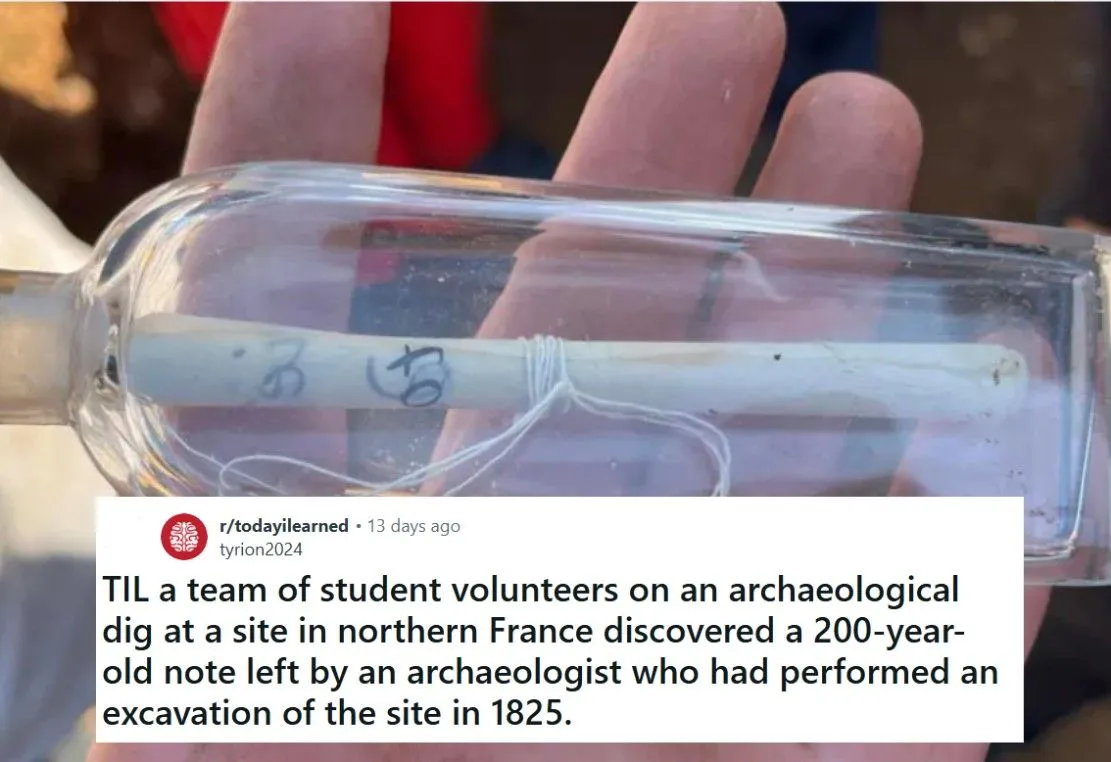 @bbc.com
@bbc.com
This unexpected discovery not only sheds light on the site’s history but also connects today’s archaeologists with their predecessors in an unusually personal way.
UFO or Tragedy?
In 1978, Australian pilot Frederick Valentich vanished without a trace while flying over the Bass Strait. Before disappearing, Valentich reported an unidentified object following him, describing it as “not an aircraft.” His final transmission mentioned the object hovering and emitting a green light before his communication cut off abruptly.
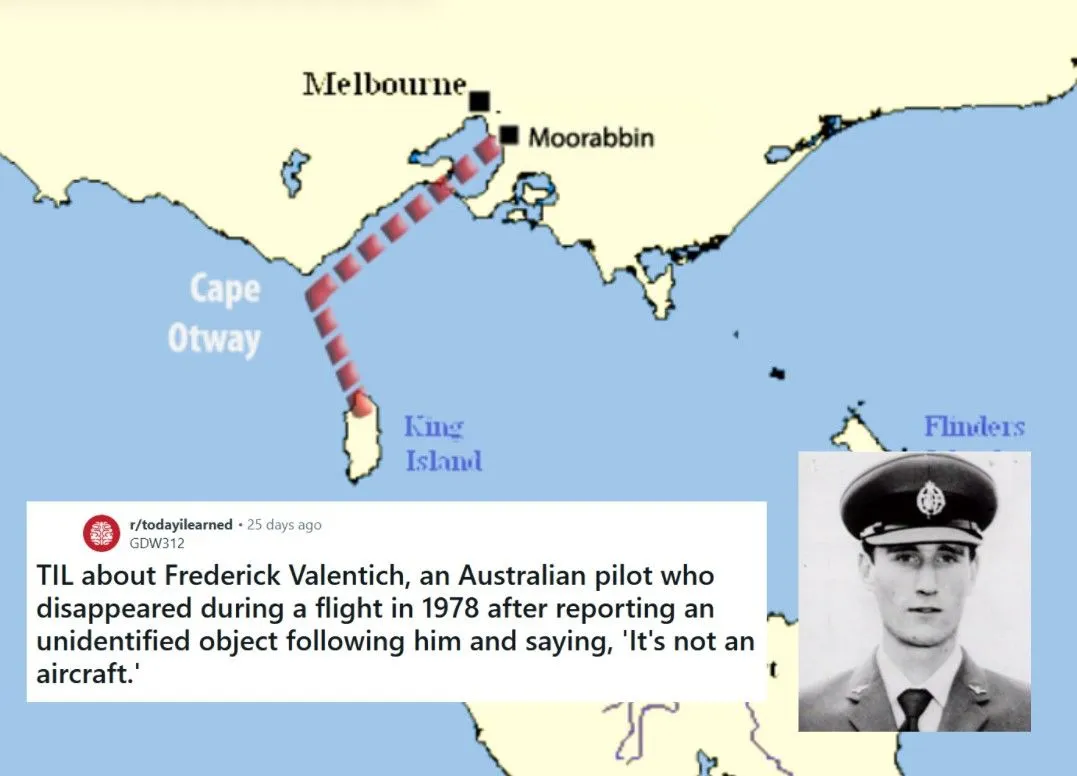 @wikipedia.org
@wikipedia.org
Despite an extensive search, neither Valentich nor his plane was ever found, leading to speculation about UFOs and extraterrestrial involvement. The case remains one of the most intriguing aviation mysteries of all time.
Cocaine in 17th-Century Italy?
In a groundbreaking discovery, researchers identified traces of cocaine in the brain tissue of two individuals buried in Italy during the 17th century. This finding challenges the widely held belief that cocaine only entered European society in the 19th century.
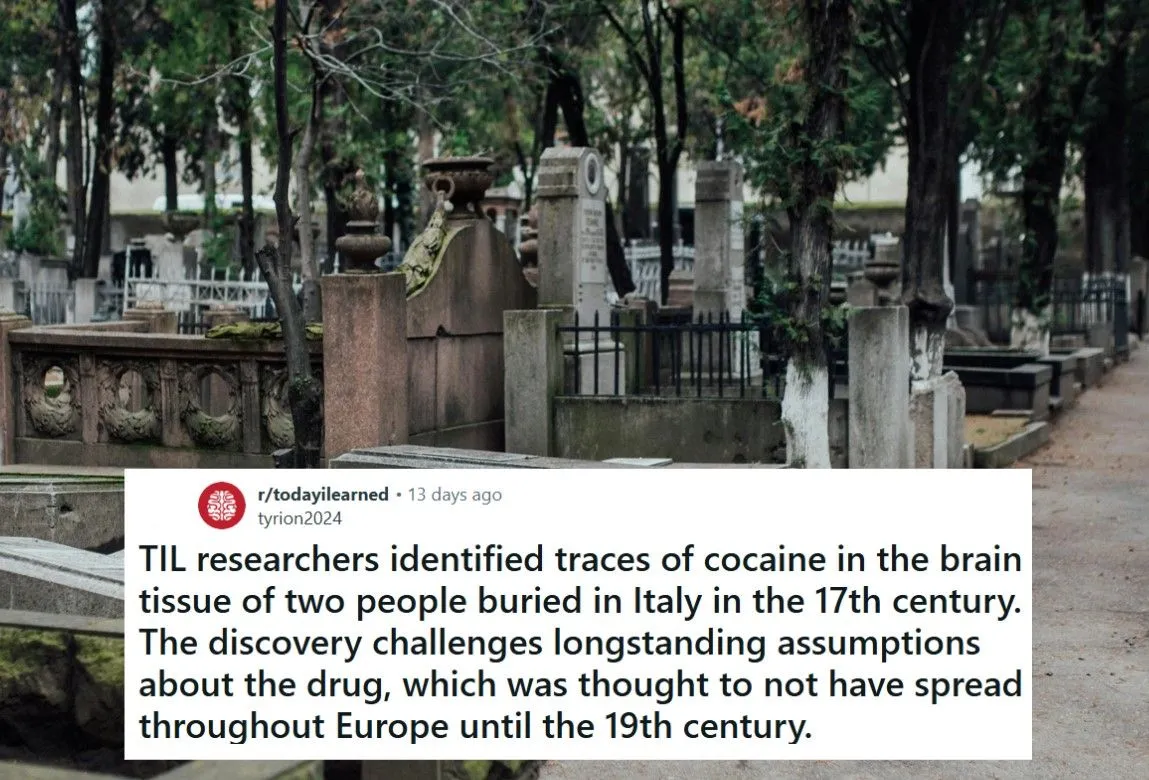
The discovery raises questions about early drug trade routes and the extent of European contact with South America during the colonial period. It’s a fascinating reminder of how new technology can rewrite history.
Sniper Nests in Sports Stadiums
For those attending American football games, safety might be a little more covert than you think. Many large stadiums have built-in sniper nests, allowing SWAT teams to monitor crowds during major events. These elevated positions give law enforcement a strategic vantage point to respond to potential threats.
 @bosshunting.com.au
@bosshunting.com.au
While it might sound extreme, the presence of sniper teams highlights the extensive security measures in place to protect spectators.
Princess Diana’s Final Keepsake
When Princess Diana was laid to rest in 1997, she held a deeply personal item in her hands: a set of rosary beads gifted to her by Mother Teresa. The connection between the two women—both renowned for their humanitarian work—added an emotional layer to Diana’s tragic passing.
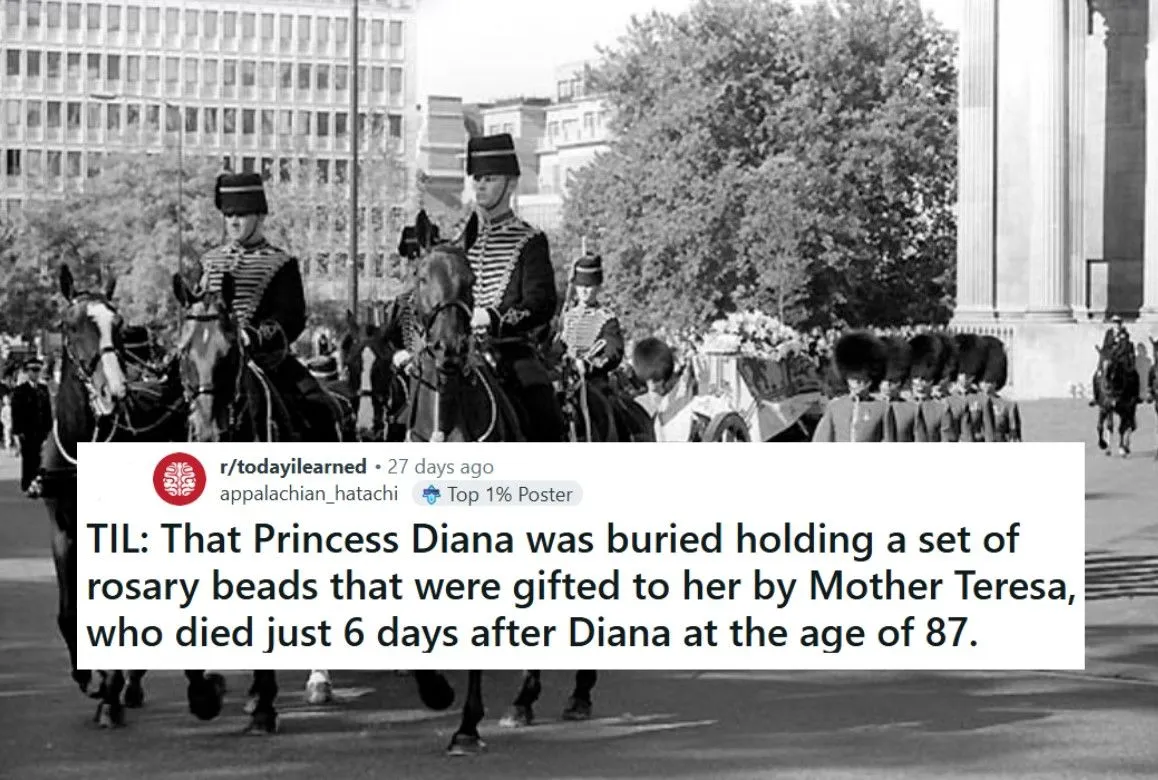 @wikipedia.org
@wikipedia.org
Heartbreakingly, Mother Teresa passed away just six days later, leaving the world mourning two icons in less than a week.
Pot-Smoking Lobsters?
In 2018, Charlotte Gill, the owner of a restaurant in Maine, made headlines by experimenting with sedating lobsters using marijuana smoke before cooking them. She believed this method offered a more humane death by reducing the lobsters' stress levels.
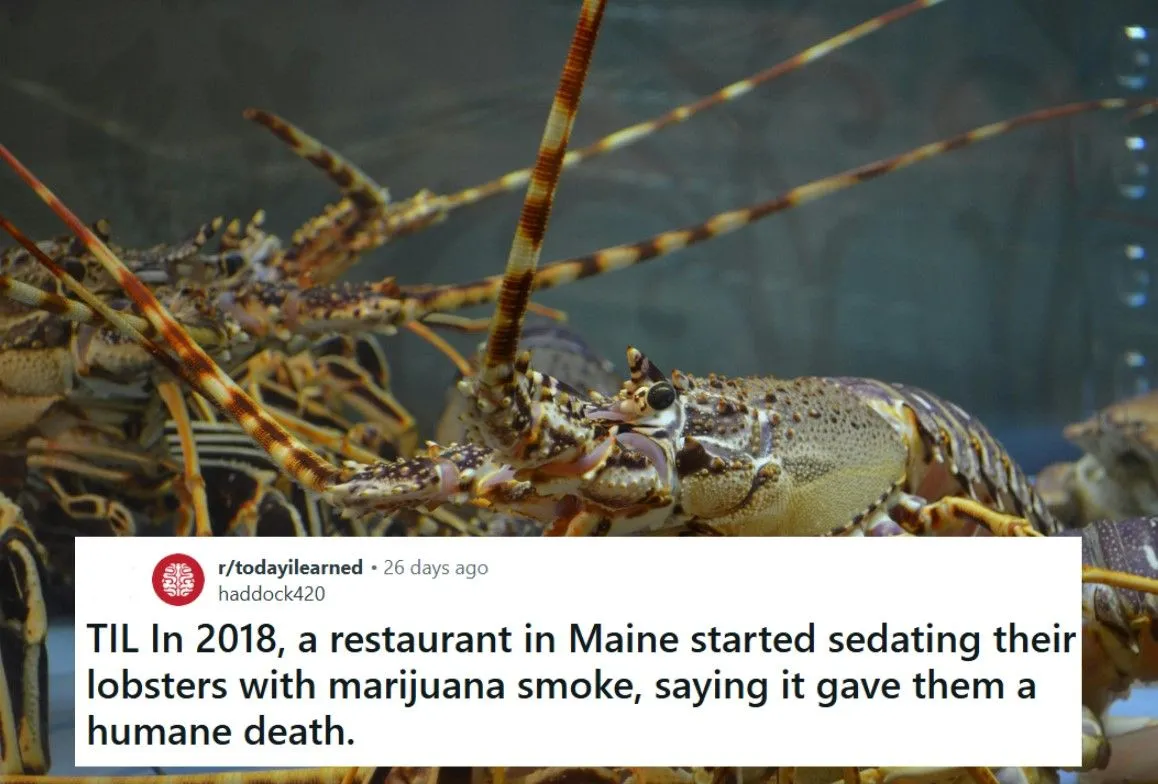
Dubbed “hotboxing,” the practice raised debates about animal welfare and whether it truly alleviated the lobsters’ suffering. While the restaurant’s unique approach intrigued many, it also sparked questions about the legality and ethics of using cannabis in this way.
Booed at Venice, Loved by Pitt
When Fight Club premiered at the 1999 Venice Film Festival, it received an icy reception, complete with boos from the audience. The reaction was so brutal that Ed Norton described it as "almost humorous."
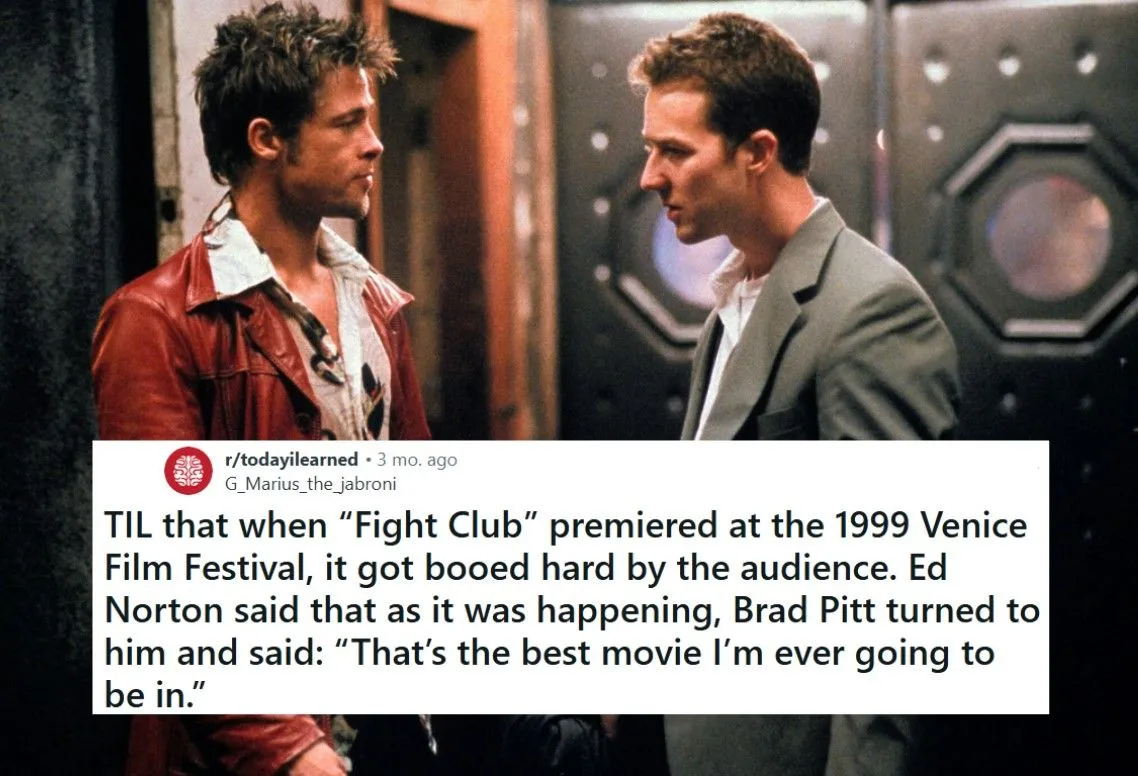 @geektyrant.com
@geektyrant.com
As boos filled the theater, Brad Pitt turned to Norton and made a bold declaration: “That’s the best movie I’m ever going to be in.” Despite its rocky start, Fight Club became a cult classic, proving Pitt’s faith in the film was well-placed.
Rescue Dogs on 9/11 Needed Rescue, Too
After the tragic events of 9/11, rescue dogs worked tirelessly to locate survivors amidst the rubble. But as the days passed, the dogs began showing signs of depression after repeatedly finding only bodies.
 @lcsupply.com
@lcsupply.com
To uplift their spirits, rescue workers staged fake rescues, hiding themselves in the rubble for the dogs to "find." So sad story...
The Sole Plane Flying on 9/11
In the wake of the 9/11 attacks, all civilian flights were grounded across the United States—except for one. A plane flying from San Diego to Miami was granted clearance to deliver anti-venom to a man bitten by a deadly taipan snake.

Escorted by two fighter jets, the mission underscored the extraordinary lengths taken to save a life even amidst national tragedy.
Swearing That Hardwired in Your Brain
Profanity, it turns out, has a unique foothold in the human brain. Studies have shown that people with severe brain injuries often lose their ability to speak but retain their ability to swear.

This fascinating discovery suggests that the brain processes swearing in areas distinct from those responsible for regular language, highlighting the emotional and instinctive nature of profanity.
The Dangers of Beach Sand
Between 1997 and 2007, 31 young people died while digging sand holes on beaches. The holes collapsed, burying and suffocating the victims.
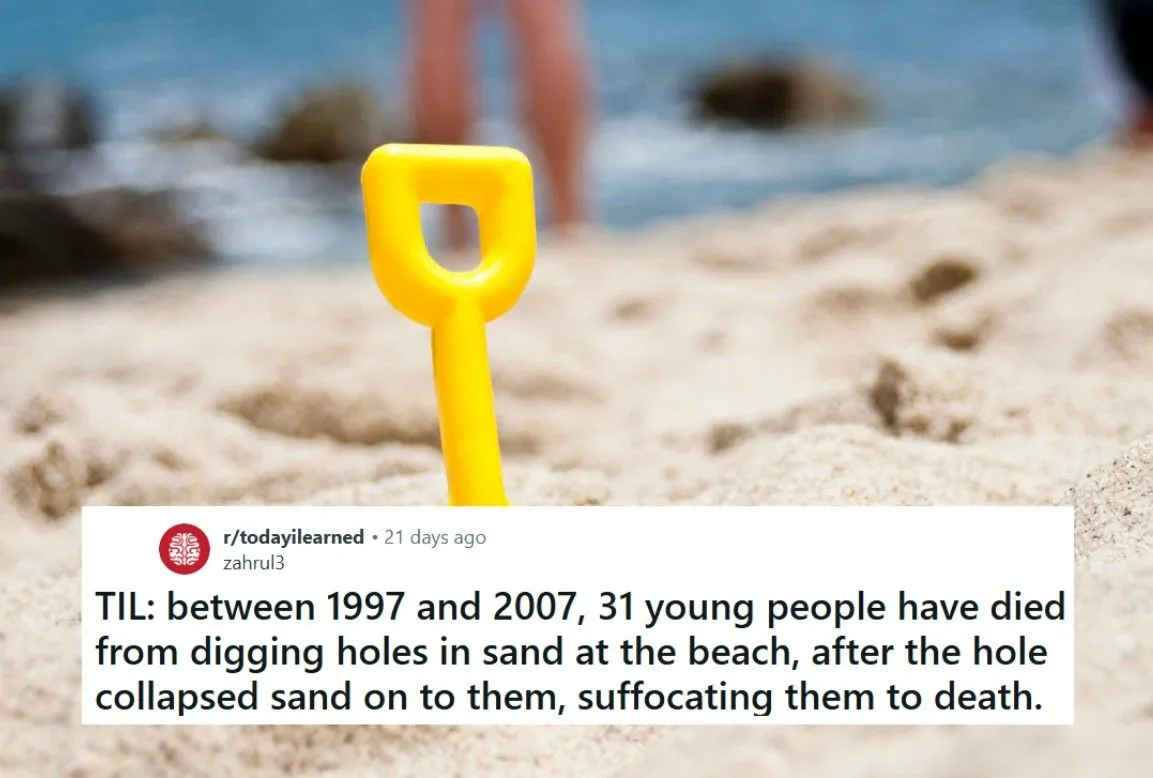
These tragedies underscore the risks of an innocent summer activity, as unstable sand can shift and trap people in an instant. Beachgoers are urged to avoid digging deep holes and to fill them in before leaving.
A Bone-Chilling Discovery
TIL that most Japanese people have only one pinky toe knuckle instead of two. This anatomical quirk, discovered in 1995, means many Japanese individuals have 204 bones instead of the typical 206 found in most humans.

Scientists suggest this variation is linked to lifestyle differences and evolutionary factors, although it had gone unnoticed for centuries.
A Skydiving Survivor's Nightmare Unmasked
In 2015, Victoria Cilliers from the U.K. survived a skydiving fall after her parachute failed at 4,000 feet, resulting in critical injuries. Remarkably, just days before this, she had narrowly escaped harm from a gas leak at home. Investigators soon discovered these were not mere accidents.
 @bbc.com
@bbc.com
Her husband, Emile Cilliers, had sabotaged her parachute and tampered with a gas fitting to orchestrate her death. Motivated by financial gain and an affair, Emile’s sinister plots came to light after forensic examinations and text message evidence revealed his betrayal.
The Hidden Scars of Family Violence
Children exposed to domestic violence endure trauma so profound it alters their brain activity. Studies comparing their brain scans to those of combat soldiers reveal a shocking similarity: both groups display heightened responses in areas associated with threat detection, such as the amygdala.

This hyper-vigilance helps them survive stressful environments but can lead to anxiety, difficulty trusting others, and emotional challenges later in life. Researchers stress the importance of early intervention to provide psychological support and help these children overcome the long-term effects of such trauma.
Smashing Psychological Limits
In 1954, Roger Bannister achieved what was once deemed impossible: running a mile in under four minutes. His accomplishment shattered not just a physical barrier but a mental one, inspiring other runners to do the same.

Within a year, several athletes followed suit, proving the power of mindset in overcoming perceived limitations. This effect isn’t limited to sports—it applies to any field where boundaries are redefined, sparking a domino effect of breakthroughs.
Marlon Brando’s Method Acting Magic
Marlon Brando’s brilliance on screen was the result of an unconventional approach: cue cards. For films like The Godfather, he refused to memorize scripts, arguing that real conversations are filled with hesitation and spontaneity. Cue cards were strategically placed around sets—on furniture, other actors, or even on lampshades.
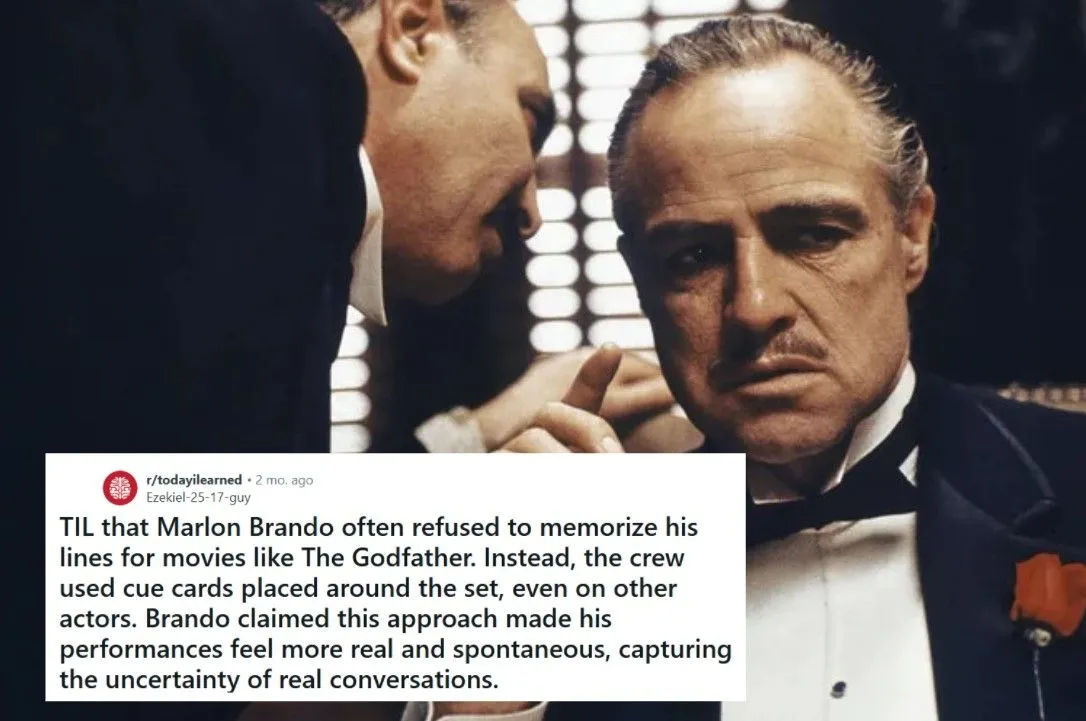 @Paramount Pictures
@Paramount Pictures
Brando’s method sometimes frustrated directors but created iconic moments. For instance, Don Vito Corleone’s pensive pauses felt organic, adding to the character’s gravitas. Brando’s innovative (and rebellious) techniques continue to influence actors today.
A War Criminal’s Self-Imposed Sentence
Hitoshi Imamura, a Japanese general sentenced to 10 years for war crimes after WWII, astonished the world with his self-imposed penance.
 @ wikipedia.org
@ wikipedia.org
The replica prison mirrored his belief in taking responsibility for his actions, a stark contrast to many other war criminals. Imamura’s unusual choice has since been viewed as both an act of atonement and a haunting testament to his inner guilt.